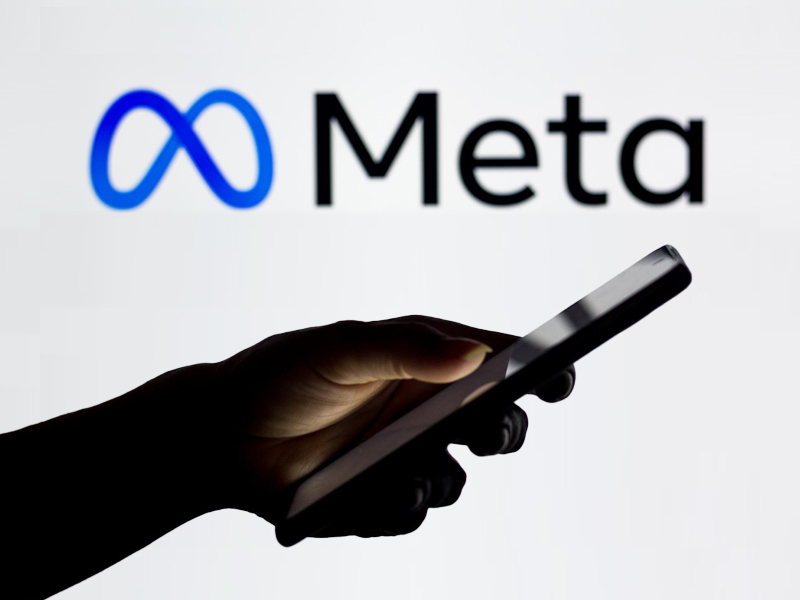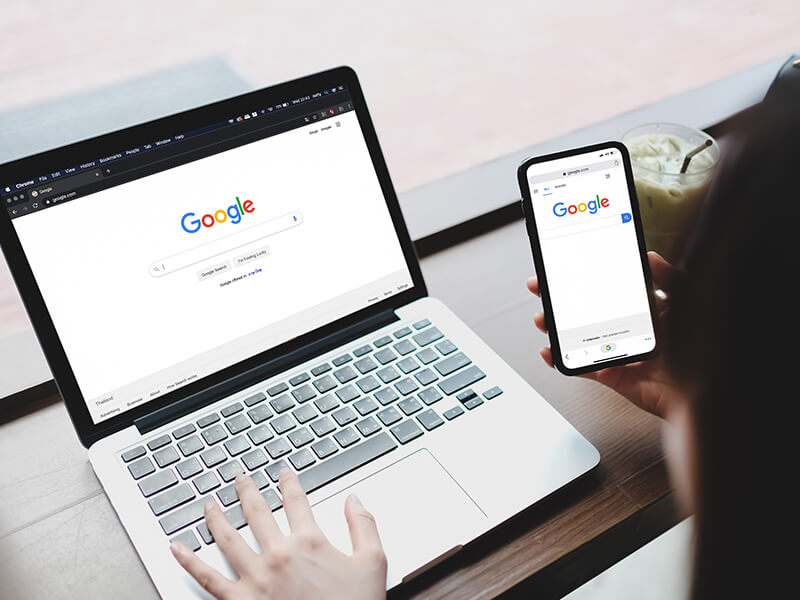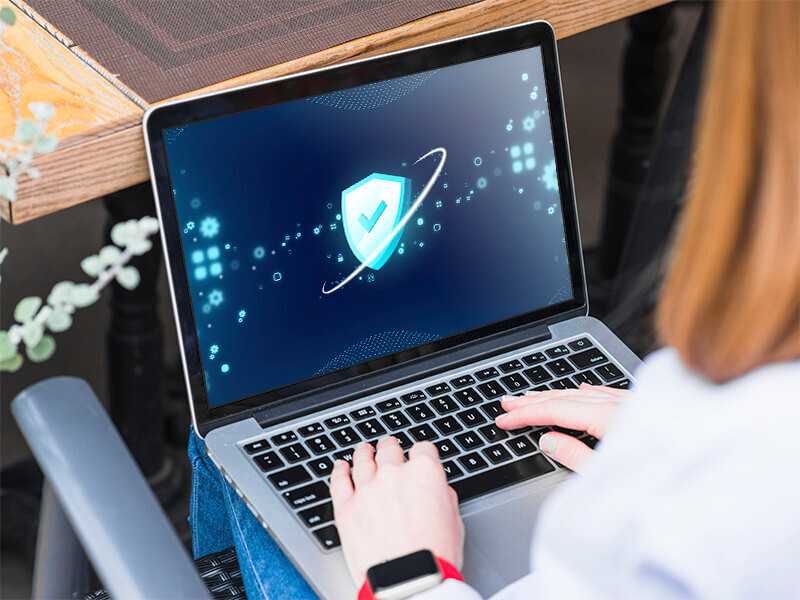Meta warns about the vulnerability in password recovery linked to the recycling of phone numbers
22/02/2024Meta, a leader in social media, has announced that it will not assume responsibility for personal account theft on Instagram and Facebook related to password recovery through the use of recycled phone numbers. The company argues that it lacks control over telecommunications providers and users involved in this practice. Phone number recycling: an overlooked risk in a recent statement Meta revealed its inability to manage personal account thefts that occur when phone numbers are recycled by telecommunications carriers. This common practice among mobile phone companies involves reassigning discarded numbers to new customers, making them owners of a number previously used by another user. In countries like Spain, carriers wait for a period of 30 days before reassigning a number, but the risk persists if users do not unlink the number from digital services or associated platforms, such as social networks and emails. The danger of not unlinking phone numbers from digital accounts When users deactivate a phone number, whether due to a change of carrier or any other reason, carriers must wait before reassigning the number. However, failure to unlink this number from digital services can result in unauthorized access to personal accounts. In many services, linking the phone number is allowed for actions such as resetting passwords. Users, upon receiving a verification code on their number, can complete the login without the need for email validation or a password. This process, though accepted, can lead to unintentional unauthorized access. Meta warns users about the importance of unlinking phone numbers from digital accounts when deactivating them, insisting on the need to update associated information to prevent account theft.
[ ... ]
Cookies
A cookie is a file that is downloaded to your computer to access certain web pages. Cookies allow a website, among other things, to store and retrieve information about the browsing habits of a user or their equipment and, depending on the information they contain and how you use your computer, they can be used to recognize the user. However, this only means obtaining information related to the number of pages visited, the city assigned the IP address from which you accessed, the number of new users, frequency and recurrence of visits, time of visit, the browser or the operator or terminal type from which the visit takes place. In no event will data be obtained about the full name or address from which the user is connected. The cookies used on this website and the specific purpose of each one are: UTMA Cookie: We use this cookie to count how many times a unique user visits the site. UTMB Cookie: We use this cookie to calculate how long a user stays on a page. UTMZ Cookie: This cookie stores the visitor's origin, the path followed to access the web, either the direct access from a link on another website, from an email link using certain keywords in a search engine, through a display campaign, or through an AdWords ad. UTMC Cookie: The current JavaScript code that Google Analytics uses does not require this cookie. This cookie is used, along with the utmb cookie, to determine if after more than 30 minutes on the same page a new session should or should not be established for the user. This cookie is still written to ensure compatibility with the websites where you installed the old urchin.js tracking code. PHPSESSID Cookie: We use this cookie to identify the relevant user. You can allow, block or delete cookies installed on your computer by setting your browser options. You can find information about how, in relation to the most common browsers, on the links listed below: Explorer: http://windows.microsoft.com/es-es/windows7/how-to-manage-cookies-in-internet-explorer-9 Firefox: http://support.mozilla.org/es/products/firefox/cookies Chrome: http://support.google.com/chrome/bin/answer.py?hl=es&answer=95647 Safari: http://support.apple.com/kb/ph5042 Please note, however, that there is the possibility that disabling any cookie may prevent or hinder navigation or the provision of services offered on this website.
[ ... ]Metaverses for adults in Horizon Worlds from Meta
05/08/2022Meta has announced that it will offer special spaces in Horizon Worlds for user up of 18 years old. To do this, the company has already begun to contact users who are creating their digital worlds on this platform, who have been asked to classify their content. Otherwise, it will be Meta who does it and regardless of its character, it will classify it as restricted adult content. All universes containing nudity, alcohol, soft drugs, blood, gambling promotion, etc. they will need to be rated 18+ through the Horizon Worlds settings section, "Build Mode" of the "World" tab. Meta has also announced that regardless of rating, worlds that contain explicit sexually content or promote violence or crime will be banned. Content depicting intense real-life violence or attempting to sell, buy, or trade regulated goods such as weapons, tobacco, or alcohol will be also prohibited.
[ ... ]Video calling apps listen when the microphone is off, according to a study
25/04/2022A group of researchers from the University of Wisconsin-Madison (United States) has determined that video conferencing applications can continue accessing audio data even if the user has disabled the microphone. To demonstrate this, they have studied the most popular video conferencing applications and have analyzed the behavior of the mute button until they has determined that all the applications that they has tested whether the microphone was open or closed, occasionally collected raw data and delivered it to the servers of their services. In their research they have worked with binary analysis tools to see how the audio was transferred from the application to the audio drivers of the computers and then to the network. They aslo have created, through machine learning models ( 'machine learning'), a classifier of daily activities that, with 82% accuracy, has determined which activities users were doing while their microphones were, theoretically, silenced. In relation to this, the authors of this work recall that beyond muting the microphone, you can turn off the microphone of a device through the settings menu, a safer option to limit access to confidential information and sensitive data. All the conclusions of this study will be known next July in the Privacy Improvement Technologies Symposium.
[ ... ]Chromebook computers will notify if someone is spying the screen
01/12/2021Google's new antispyware tool will warn if someone spies the screen. The new tool will have the potential to lock the computer by facial recognition. Google has everything ready to test its new anti-spying tool, which will be incorporate in the future, Chromebook computers. This tool, if the user has it activated, will be able to send a warning alert every time it detects that another person is spywaring the screen. The anti-spying function will be activated through its human presence sensor. The user can activate or deactivate the tool from the settings section. When the system detects a person spying or looking over the user's shoulder, the computer screen will warn him discreetly, either with a icon or by dimming the screen. According to the first information released, the sensor would have the potential to lock or unlock the equipment through facial recognition. In addition, the tool will incorporate additional functions such as an automatic deactivation of the notifications of the conversations that the user is having privately when the "spying" is detected.
[ ... ]OPPO joins the Connectivity Standards Alliance
21/10/2021Oppo has announced its membership on the Board of Directors of the Connectivity Standards Alliance (CSA), the organization with more than 400 technology companies working together to increase compatibility in IoT through simpler technology standards. One of Oppo's main objectives in his new role, explained Neil Yang, director of OPPO's Standards Research Department, is to promote Matter, the base protocol for the Internet of Things (IoT), offering a simplified user experience that allows connecting different devices "We want to create a highly compliant IoT ecosystem, and drive the development of the Alliance's advancements together with other partners through proposals for new protocols, setting new standards and developing new Matter-based products”, says Yang. For the CSA, Oppo's commitment is an open door to promote Matter in China and throughout Asia, offering the possibility of providing better IoT experiences to more than one billion users.
[ ... ]Google ads a quick delete button to erase your recent search history
19/07/2021Google has just announced the addition of a quick delete browsing history feature in Chrome. This feature will save users from going to settings to delete the last visits done and with the intention of protection of personal data and privacy. The button is located in Chrome's main menu where you can access through the image of your Gmail account avatar. By clicking on the "Clear last 15 minutes" button, all searches performed in that period will disappear. In addition to this sort of "panic button" for quick deletion, Google also has an "auto-delete" feature, which we can configure to automatically and continuously delete our search history, along with other web and application activity, from our account after three, 18 or 36 months. By default, for new accounts the default automatic deletion option for web and app activity will be 18 months, but you can always choose to update your settings if you wish.
[ ... ]How to keep your Mac safe?
28/06/20215 things you should do to protect your Mac How many times have we heard that Mac is a more than secure and unbreakable system? For years, Apple has made its security through obscurity, or in other words, its proprietary software, flagship and brand guarantee. Today, however, just when Mac is no longer a minority option, Steve Jobs' system has become another favorite target for hackers and cybercriminals. The market has responded to this with the development of specific protection tools for Mac, while Apple works on optimizing its system in each version. Knowing what kind of tools exist for Mac and which ones are already included in our computer will help us to stay safe and choose the best strategy that fits our needs and use of the equipment. 1. Use computer security tools Cybersecurity is a universal and necessary practice in all operating systems today. The objective is to ensure protection against attacks and theft by cybercriminals who are looking for personal or confidential information stored on our computers or that enters or leaves them, in order to use it for their own benefit. What is VPN security? Cybersecurity tools help us to minimize our footprint on the Internet and thus increase our privacy and security. In this regard, VPN services for Mac stand out, as they incorporate advanced protection technologies capable of connecting to the Internet through intermediate servers, so that our IP address - our identification on the network - is replaced by the IP address of this secure server, without anyone being able to trace our connection. This type of VPN service also encrypts any information leaving our computer, thus preventing it from being accessed on its journey to its destination. This is essential, for example, when using public Wi-Fi networks to connect to the Internet. 2. Keep the operating system and software up to date As simple as it may seem, one of the best and easiest ways to protect a Mac is to always have the latest version of the operating system installed and to work with updated software downloaded from the Mac App Store. System updates usually include security patches, among other things. How do I update my Mac? Through the System Preferences Panel of our computer we can set that when there are available updates we receive a notice from MacOs warning us of it or that these updates, whether system data files, security updates or official software are installed automatically. To check if we are working with the latest versions available and our Mac is up to date we can do it by checking through this same panel if there are updates available at that time. If we have checked the automatic updates option, Mac will do this task for us routinely. 3. Use secure settings Mac's default security settings can be greatly enhanced by manually configuring the security and privacy terms of our computer. How to change the Privacy and Security preferences on the Mac? By accessing the "Privacy" tab of the "Security and Privacy" option of the Control Panel we will have the option to manage what information we allow our computer to make available to others over the Internet or on a network and what applications we allow access to our data and files. In the same way, but through the "Security" tab, we will be able to incorporate passwords for the access to different tasks and operations of the computer and through the "FileVault" tool we will be able to ensure the encryption, for example, of our personal information or certain documents for which a password will be required to unblock them. 4. Use an Antivirus for Mac There are antivirus programs developed specifically for Mac. Some of them are special for certain threats, although in general most of them offer a wide range of services to help us keep our computers safe. Which is the best antivirus for Mac? The range of antivirus for Mac, free and paid, is nowadays much wider than a few years ago, highlighting among the most complete and advanced, antivirus with malware protection functions in real time, tools against digital identity theft, protection against spyware or advanced detection and removal of blackmail programs. 5. Make regular backups Apple has a native function, Time Machine, which makes backup copies of our hard disk on a separate secondary disk, so that if for any reason we suffer an attack or a breakdown we can recover all the information. Many antiviruses offer a backup service, backup or backup similar but in the cloud, as a preventive measure against writing errors on the disk, theft of devices or even against data hijacking or ransomware.
[ ... ]








